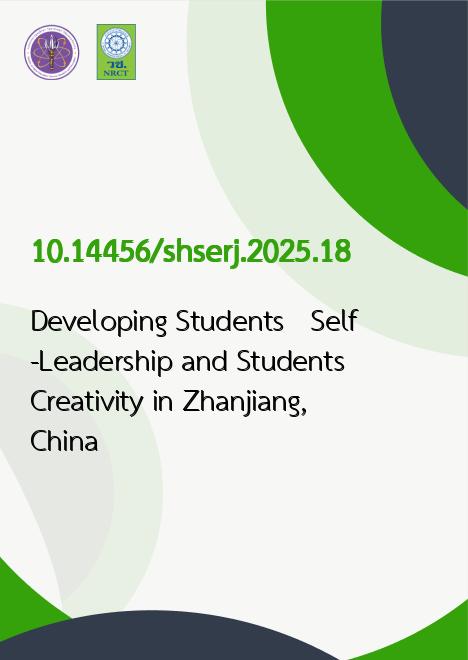
|
Developing Students Self-Leadership and Students Creativity in Zhanjiang, China |
|---|---|
| รหัสดีโอไอ | |
| Creator | Le Kang |
| Title | Developing Students Self-Leadership and Students Creativity in Zhanjiang, China |
| Publisher | Assumption University Press |
| Publication Year | 2568 |
| Journal Title | The Scholar: Human Sciences |
| Journal Vol. | 17 |
| Journal No. | 1 |
| Page no. | 190-199 |
| Keyword | Behavior Focused, Natural Reward, Self-leadership, Creativity, Intervention Design Implementation |
| URL Website | http://www.assumptionjournal.au.edu/index.php/Scholar/article/view/7864 |
| Website title | The Scholar: Human Sciences |
| ISSN | 2586-9388 |
| Abstract | Purpose: The study investigates the influence of five independent variables (Behavior Focused, Natural Reward, Constructive Thought, Self-Punishment, and Self-Talk) on two dependent variables (Self-Leadership and Creativity). Additionally, it aims to identify significant difference between variables. Research design, data, and methodology: The research employed the Index of Item-Objective Congruence (IOC) for validity and a Cronbach's Alpha in a pilot test (n=50) for reliability. 259 valid responses from students at Zhanjiang University of Science and Technology were analyzed by the multiple linear regression to verify the significant relationship between variables. Following this, a group of 30 students underwent a 14-week Intervention Design Implementation (IDI). Afterwards, the quantitative results from post-IDI and pre-IDI were analyzed in the paired-sample t-test for comparison. Results: In multiple linear regression, the study revealed that behavior focused, natural reward, constructive thought, and self-talk significantly impacted students' creativity, while self-punishment had no significant impact on creativity. Additionally, constructive thought and self-talk significantly impacted students' self-leadership, whereas behavior focused, natural reward, and self-punishment did not significantly impact self-leadership. Finally, the results from the paired-sample t-test for comparison demonstrated significant difference in both self-leadership and creativity between the post-IDI and pre-IDI stages. Conclusions: This research endeavors to foster students' creativity by cultivating their self-leadership skills in the context of Zhanjiang, China. |
